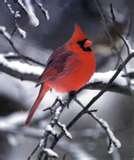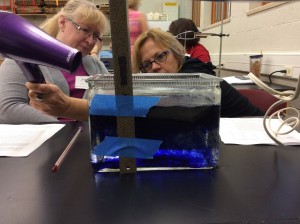This week we are highlighting three winter friendly lesson plans. If you would like to have a fellow come to your class to help with these lessons (or any of the other lesson plans found in our interactive table) please send a request to gk12fellows@kbs.msu.edu and one of our fellows will get back to you!
Featured Lesson Plans:
1) What’s in My Backyard? Identifying Winter Birds in Michigan
Get your students outdoors with this fun lesson that will have your students observing and identifying Michigan’s winter bird species. In this lesson students will learn how to identify the 16 most common feeder birds in Michigan and will be introduced to 8 other less common species. Students will learn how scientists classify and identify species. This lesson also provides materials necessary for students to collect data from their own bird feeder and tools to contribute their data to citizen science efforts, such as the Great Backyard Bird Count or Cornell’s eBird tracking program that help scientists monitor bird populations across the United States!
Link to What’s in My Backyard? lesson plan
2) Frogsicles: How Frogs Survive the Winter
Curious about how frogs survive the freezing temperatures of winter? In this lesson students will investigate the topics of osmosis, solute concentration, and freezing point depression to explain how frogs can make it through the winter. This lesson utilizes fun, inquiry based demonstrations and is ideal for both physical science and life science classrooms.
Link to Frogsicles lesson plan
3) Water in the Classroom: Lake Mixing
How does a lake change throughout the year as the seasons progress? In this lesson students will engage in several hands-on demonstrations to illustrate the effects of temperature on water density, lake stratification, and lake mixing. Students will simulate an entire year of a lake to visualize how water moves and stratifies naturally. This lesson is great for physical and life science classrooms interested in investigating the properties of water and important components of lake ecosystems.
Link to Lake Mixing lesson plan



A legacy of conservation; a commitment to sustainability.
3700 E. Gull Lake Drive
Hickory Corners, MI 49060
(269) 671-5117
info@kbs.msu.edu